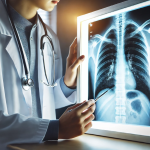Kidney Diseases: Early Symptoms, Diagnosis, and Prevention
Kidney diseases encompass a range of conditions that impair the kidneys’ filtration function, leading to disruptions in overall bodily health. Early detection of kidney disease symptoms is crucial for preventing serious complications. Below, we explore the primary signs that may indicate potential kidney problems.

Key Symptoms of Kidney Diseases
1. Lower Back Pain
A common symptom of kidney disease is dull or sharp pain in the lower back. This pain can be unilateral or bilateral, depending on whether one or both kidneys are affected. It is often associated with kidney stones or inflammation (pyelonephritis).
2. Changes in Urination
- Frequent urination, particularly at night (nocturia).
- Reduced urine output or complete absence of urination (oliguria, anuria).
- Blood in the urine (hematuria), which may indicate kidney stones or tumors.
- Cloudy urine with a foul odor, suggesting infection.
3. Swelling (Edema)
Swelling in the face, hands, and legs is caused by the body retaining excess fluid due to impaired kidney function. This swelling is most noticeable in the mornings.
4. High Blood Pressure
Hypertension frequently accompanies kidney diseases since the kidneys play a vital role in regulating blood pressure.
5. General Malaise
Weakness, fatigue, and decreased productivity occur due to toxin buildup in the body as a result of impaired kidney function.
6. Pale Skin and Anemia
Chronic kidney diseases can lead to anemia due to reduced production of erythropoietin, a hormone that stimulates red blood cell formation.
7. Pain or Burning Sensation During Urination
This symptom is commonly linked to urinary tract infections (UTIs), which can spread to the kidneys if untreated.
8. Fever and Chills
Fever and chills are often associated with acute kidney infections, such as pyelonephritis.

When to See a Doctor
Kidney disease symptoms can go unnoticed in the early stages. However, consult a doctor if you experience:
- Persistent lower back pain.
- Changes in urine color or the presence of blood.
- Severe swelling and high blood pressure.
- Fever accompanied by back pain.
Diagnosis and Treatment
To confirm a diagnosis, your doctor may recommend:
- Urine and Blood Tests: To evaluate kidney function and detect infections.
- Ultrasound Imaging: To identify structural abnormalities.
Treatment will depend on the underlying cause and may include:
- Antibacterial Therapy: For infections.
- Dietary Adjustments: To reduce the strain on the kidneys.
- Medications: To manage symptoms and slow disease progression.

Kidney Diseases: Causes, Symptoms, Diagnosis, and Treatment
Kidney diseases encompass a range of conditions that affect the structure and function of the kidneys, two vital organs responsible for filtering waste, balancing electrolytes, and regulating blood pressure. These conditions can vary in severity, from mild infections to life-threatening chronic kidney disease (CKD) or kidney failure. Recognizing the causes, understanding the symptoms, and seeking timely treatment are crucial for maintaining kidney health and preventing complications.
Common Causes of Kidney Diseases
The causes of kidney diseases are diverse and often interrelated. Chronic conditions like diabetes and hypertension are the leading contributors to kidney damage, as high blood sugar and elevated blood pressure strain the kidneys over time. Glomerulonephritis, an inflammation of the kidney’s filtering units (glomeruli), is another common cause. Infections, such as urinary tract infections (UTIs), can also lead to kidney complications if left untreated. Other risk factors include genetic conditions like polycystic kidney disease (PKD), kidney stones, and autoimmune diseases such as lupus. Certain medications, toxins, and long-term use of nonsteroidal anti-inflammatory drugs (NSAIDs) can also damage the kidneys.
Symptoms of Kidney Diseases
Symptoms of kidney diseases often depend on the severity and progression of the condition. Early stages may be asymptomatic or present mild symptoms, making regular screening essential for at-risk individuals. Common symptoms include:
- Fatigue and Weakness: Reduced kidney function can lead to the buildup of toxins in the body, causing fatigue and lack of energy.
- Swelling (Edema): Fluid retention may cause swelling in the legs, ankles, feet, or face.
- Changes in Urination: This includes increased or decreased urination, blood in the urine (hematuria), or foamy urine indicating protein leakage.
- Shortness of Breath: Fluid buildup in the lungs due to kidney issues may cause difficulty breathing.
- High Blood Pressure: Kidney damage can affect the body’s ability to regulate blood pressure.
- Nausea and Vomiting: The buildup of toxins may lead to gastrointestinal symptoms.
- Itchy Skin and Cramps: Imbalances in electrolytes, particularly calcium and phosphorus, can cause itching or muscle cramps.
In advanced stages, such as kidney failure, individuals may experience severe fatigue, confusion, and life-threatening complications requiring immediate medical attention.
Diagnosing Kidney Diseases
Diagnosing kidney diseases involves a combination of physical examinations, laboratory tests, and imaging studies. Blood tests measure levels of creatinine and blood urea nitrogen (BUN), key indicators of kidney function. The glomerular filtration rate (GFR) is calculated to assess the kidney’s filtering capacity. Urinalysis helps detect abnormalities like blood, protein, or infections in the urine. Imaging techniques such as ultrasound, CT scans, or MRIs provide detailed views of the kidneys, revealing structural abnormalities like cysts, stones, or tumors. In some cases, a kidney biopsy is performed to determine the underlying cause of kidney damage.
Treatment for Kidney Diseases
Treatment depends on the specific condition and its severity. For acute kidney conditions, such as infections or kidney stones, addressing the root cause can restore kidney function. Antibiotics treat infections, while medications and lifestyle changes manage conditions like high blood pressure and diabetes. In some cases, dietary adjustments, including reduced sodium, protein, and potassium intake, are necessary to ease the workload on the kidneys.
For chronic kidney disease, the goal is to slow disease progression and prevent complications. Medications like angiotensin-converting enzyme (ACE) inhibitors or angiotensin receptor blockers (ARBs) help manage blood pressure and protect kidney function. Diuretics reduce swelling, and phosphate binders may be prescribed to control mineral imbalances.
In advanced kidney disease or kidney failure, dialysis or kidney transplantation becomes essential. Dialysis helps remove waste products and excess fluid from the blood, mimicking kidney function. Transplantation involves replacing the failing kidney with a healthy donor kidney, providing a more permanent solution for kidney failure.
Preventing Kidney Diseases
Preventing kidney diseases involves adopting a healthy lifestyle and managing risk factors. This includes:
- Maintaining a Balanced Diet: Focus on fruits, vegetables, whole grains, and lean proteins while limiting salt and processed foods.
- Staying Hydrated: Proper hydration supports kidney function and helps prevent kidney stones.
- Regular Exercise: Physical activity helps regulate blood pressure and blood sugar levels.
- Avoiding Harmful Substances: Minimize alcohol consumption, avoid smoking, and limit the use of nephrotoxic medications.
- Monitoring Health Conditions: Regular check-ups to manage diabetes, hypertension, and other chronic conditions are essential.
Conclusion
Kidney diseases can significantly impact quality of life, but early detection and proactive management can prevent serious complications. By understanding the causes, recognizing the symptoms, and following appropriate treatments, individuals can maintain optimal kidney health. Regular medical check-ups and adopting healthy habits are key to preventing kidney diseases and ensuring overall well-being. If you or someone you know experiences signs of kidney problems, consulting a healthcare professional promptly is the first step toward effective care.
















